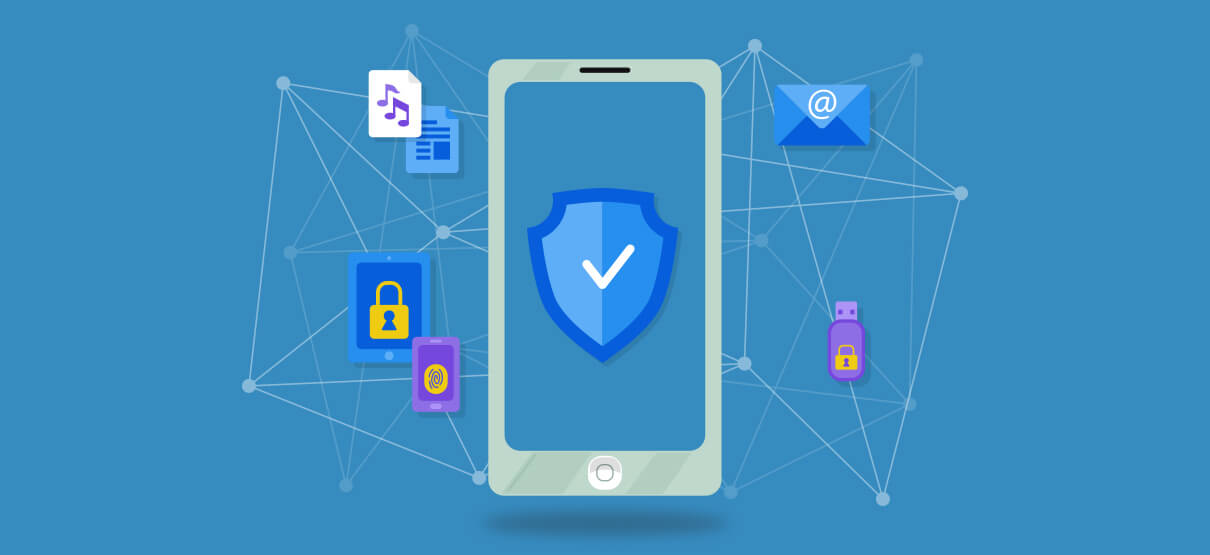


Then there are other traits that are not receiving as much attention. They may not be noticeable to the naked eye. Perhaps they are called automatic, or inherent to the app. The mobile app security is an outstanding example. In the hybrid vs. native issue, security is definitely not the decisive factor, or, at least, not security alone. You probably intend to select a platform for growth based on future scope, or what features or personal preference you'll need. But is it the best plan?
With privacy and data protection more and more often making their way into the mainstream, individuals are becoming more and more about what they share and how they share it with brands with which they communicate. You're trying to get ahead of security. You want to be on the side of people who have the right way to do data security.
It provides the ultimate customer experience, but it comes at both a time and a budget price. It's always seen as the safest. This is because everything, encrypted and obfuscated, can be coded into the app's architecture.
At a lower cost, the wrapper gives it almost the same functionality as the native. It's also seen as less secure. This is because some of the functionality of the underlying platform can be revealed by the hybrid container, which is basically a web browser.
Any app's security vulnerabilities rely on the platform and how well the code is developed.
The simpler the code and program is to be exploited by hackers, the more at risk your app would be.
Let 's assume that the iPhone is jailbroken-this activity exposes all the applications of the handset, allowing a hacker to log in and retrieve a data backup quickly. (With an Android app, similar problems will occur).
Pokémon Go is a fantastic security feature. The creator of Pokémon Go, Niantic, agreed to take aggressive steps to make the platform more stable after players were using third-party apps to hack the game. For example, after signing in, users were presented with a Google Captcha.
For hybrid applications, the protection risk is greater. Also, can they have security issues that are special to any programming language used, they are often vulnerable to vulnerabilities that affect web browsers and those that affect native applications, since any native code is still used to create hybrid apps.
Evernote is an example of a hybrid software with excellent security features. Evernote "defines the network boundaries using load balancers, firewalls, and VPNs," according to its website. Evernote uses these tools to monitor the services it exposes to the public to keep its development network isolated from its other networks.
Optional two-step authentication is also provided by Evernote. A time-based, one-time password (TOTP) supplied to the phone of the user or created by Google Authenticator is used in this method.
You're going to have to choose what kind of app you're going to build at some point, but how are you going to determine essentially? To help you understand what is right for you, your company and your clients, let's start by asking some questions:
When you want to put the app to market, one of the first items to decide is. Do you want to be the first one to release and defeat your competition with this sort of app? If so, your best bet is a hybrid app. If you have more time (eight months or more, say), then a native app is a perfect alternative.
How much funds will you be able to spend in your app? If you work on a small budget, you can create a hybrid app at a cheaper cost; but if you have a large budget to play with, prefer native ones.
Along the way, each app publishes updates, so how much do you think your app would require? You might choose a hybrid app, which needs less upkeep, if you plan to get regular updates or bug fixes.
To get things done, most of us rely on the internet. But is an offline mode necessary if you want to grow an app? In order to run, hybrid apps require the internet; native apps do not. Also, since hybrid apps need constant internet access, they normally take longer to load, from a UX point of view, just something to consider.
The war is never going to stop between hybrid apps and native apps because, frankly, there's a space for both. Not each restriction can be a problem for you, and not every gain can suit the specifications. Ultimately, you need to weigh the advantages each one provides and test them against your priorities to make the right choice for you.
Hybrid development is straightforward, rapid and cost-effective; however, the safety issues are a little more involved.
Native development makes for more advanced applications that require access to unique handset functionality and superior performance, but native apps are more costly and time-consuming.